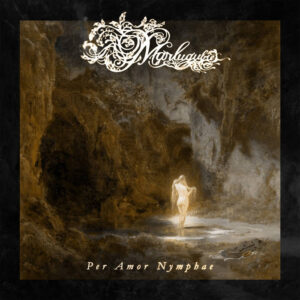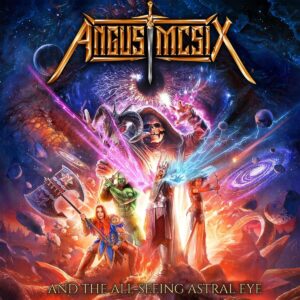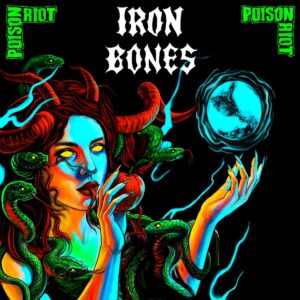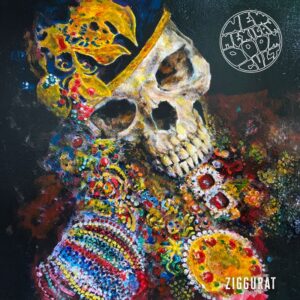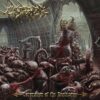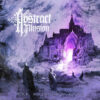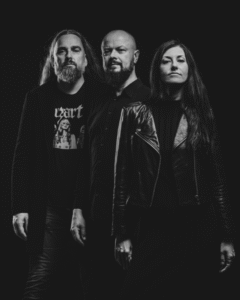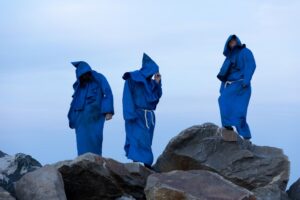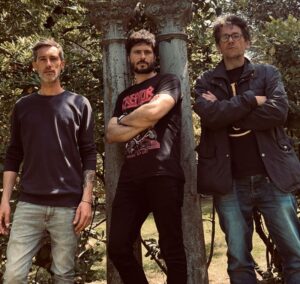Michael Stancel & Riley McShane
Allegaeon
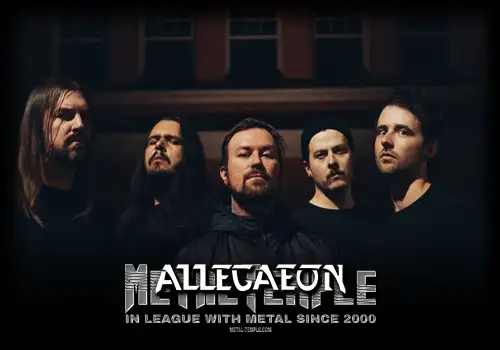
R: Thank you for having us! All things considered; we have been doing well. The ups and downs of the pandemic have taken a toll on lots of people but we're looking forward to and hoping for a rapid return to normalcy in the new year.
R: To be completely honest with you, looking at the glass half full hasn't really been something that we've been doing in earnest until recently. It's been hard to focus on the positives while immersed in so much global fear and instability. Fortunately for us, however, we have the medium of our music to channel many of those thoughts and emotions into and I can personally say that having that outlet has been a huge help in making it through the past two years.
R: Loss was something all the members of Allegaeon experienced profoundly since the start of the pandemic. We have lost loved ones, jobs, and the obvious loss of the ability to tour and engage with our audience in a way we have grown accustomed to for over ten years as a band. These experiences coloured the album and our process of writing it, so it only felt fitting to title the album with those losses in mind.
R: Certainly more of the latter – the lyrics for DAMNUM weren't written around a central concept or set of ideas but were taken directly from my own experiences with the aforementioned loss paired with the struggles that accompanied adjusting my life so drastically and so quickly in the wake of the pandemic.
R: Anger was probably the least present emotion for me while writing for DAMNUM. There was a lot of frustration, to be certain, but that frustration often translated into hopelessness and sadness. In no way was I distressed by people's ignorance of mental health, but was instead trying to channel the decline of my own mental health into something that might resonate with others experiencing the same things.
R: I don't really think that there can be a sense of victory or defeat when discussing issues surrounding mental health. Every day can present its own set of challenges to which one can succumb or overcome but this doesn't necessarily represent defeat to or victory over one's personal demons. My hope with "Damnum" is to harbour an environment of unity among those who listen that struggle with mental and emotional hardships.
R: I do take a bit of solace in the hope that the sense of unity mentioned above can be established among listeners. It was a very difficult set of lyrics for me to write for a myriad of reasons but since its completion I have felt a new sense of understanding within myself and of some of the difficulties that putting pen to paper for this album managed to accomplish closure to.
M: I think it's a growth in maturity that we tried to bring to technical music as we wanted to add a sense of emotion and feeling to a genre that can sometimes come off as robotic or emotionless. We prioritized the songs as a whole over any kind of ego boosting or unnecessary wankery that would detract from the overall feelings or sentiments we we're trying to generate, and I think it shows in the final result. There's still plenty of wankery so don't worry (haha) but it appears where it should and pushes the song further rather than just being there because every song needs a guitar solo, not always needed.
M: I think the vision came from our group writing sessions and when we started to see the overall sound that the album possessed. When we brought all our work together, we were able to see the direction the record was already heading and were able to edit, cut, and modify elements to better suit it as a whole. I also think the versatility came from our collective backgrounds with music, as we all like and listen to a large expanse of different genres that gave us more inspiration and different ideas to work with.
R: Jeff brought something to the table with this album that we've never truly experienced as a band. Not only did he write all his own parts, but he contributed creatively in a major way to the overall songwriting process across instruments. His dedication to his instrument and to Allegaeon has been hugely inspiring for all of us and we are beyond happy to have brought him into the fold for DAMNUM. I think that all musicians should express themselves freely, but I do lean toward the opinion that every artist's primary focus should be in the area where they have the most expertise.
M: Oh definitely, I know for myself once the album was completed, I needed a long period of time to recharge before I could work on other music again. We all put so much into this record to make sure it was exactly what we wanted that once it was done, I felt like we'd put all of ourselves into it.
M: This album really was a lesson in cooperation and collaboration. We've worked on songs together before but never to this degree and I think if it was with any other group the process would have been much more difficult. We're all respectful of each other and that's a big part of what made the process work.
R: Dave really does feel like a member of the band at this point. His hands-on approach to production and his seemingly endless well of creativity that he draws from during the recording and production process is invaluable to us as a band and to the sound we have developed throughout our career.
R: Writing for this song was incredibly gratifying. Having a musical backdrop on which I can truly express and exercise a variety of vocal styles in a way that we as a band find tasteful and fitting to our sound is something I've wanted for myself in Allegaeon for a long time and I'm overjoyed that we managed to find that perfect balance on DAMNUM.
R: It has become a common for Allegaeon to explore different musical landscapes within our albums and a huge part of that is Greg's (Burgess) background in classical guitar performance. Being a degree-holder from the Cincinnati Conservatory of Music and having a thorough knowledge of music theory has given Greg a unique disposition in the metal community to bring a breath of fresh air with every Allegaeon album in the form of his daring and exploratory ventures into genres of music ranging from flamenco to Bach-inspired classical pieces.
DAMNUM is no exception to the inclusion of these pieces and "To Carry My Grief through Torpor and Silence" is absolutely the most profound example. Paired with the musical prowess of our bass player Brandon Michael (aka BooBoo) the reprieve from heaviness in that track I think serves as a shining example of the powerful musicianship within the band that I am honored to be a part of.
R: I don't think any of us can predict what the future holds for us beyond the fact that we will always make music together. I'm beyond thrilled to see the level of positivity in the reception of DAMNUM thus far, but I don't think that we'll view it as a bar that we've set for ourselves as musicians to overcome but rather as a cathartic experience of growth that we shared together as friends and as artists. I'm sure the next album we write will continue bring us together and push us forward.
R: I'm so proud of this album. No matter what the outcome in the reception of this album – be it positive or negative – this process and the growth it provided for me and for the band will be something I always hold close to my heart.
R: We're approaching every day and every opportunity with the expectation that things will soon return to normal for live music. Even if it doesn't, it's better to be prepared for something to fall through than to be unprepared for something guaranteed to happen. We have a few contingency plans lined up in case things continue down the road they've been on for the past two years but are hoping to not have to cash them in in lieu of getting back on the road.
Thank you for having us and best of luck, health, and wellness to you and yours going into this new year.

More results...


